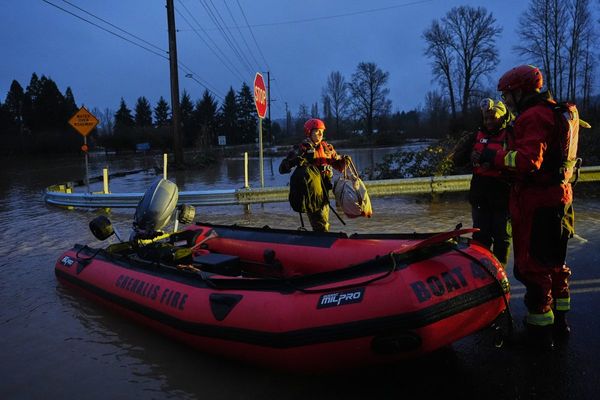
The world is halfway towards a legally binding treaty to end plastic pollution, as negotiators in Kenya spend this week debating the best way to slash the waste building up in oceans and ecosystems. Plastic is largely made from fossil fuels, which means oil-rich countries have a significant stake.
Officials and civil society groups from 175 countries are meeting at the UN Environment Programme (UNEP) headquarters in the Kenyan capital Nairobi for the third of five rounds of talks aimed at reaching a deal by the end of the year.
Negotiators are using a "zero draft" document that was agreed during the last round of talks in Paris in June. They must decide whether to limit the amount of plastic being produced, or simply focus on the issue of waste management.
Greenwashing fears
For the first time petrochemical companies – which make the plastic polymers used in bottles, food wrappers, Styrofoam (EPS) cups, drain pipes, clothing, detergents, non-stick cookware and other such products – have joined the fray.
As the negotiations progress, environmental groups are warning governments against putting the interests of petrochemical companies ahead of the health of the planet.
Countries with large petrochemical industries favour a focus on recycling and the safe disposal of waste rather than putting caps on the production of new plastic.
Defending the role of expanded polystyrene, an alliance that represents EPS manufacturers around the world urged negotiators to consider material and packaging science in their policies.
“Ambitious goals must be balanced with the reality of implementation challenges,” the Global EPS Sustainability Alliance, an observer at the talks, said in a statement.
“Packaging science and environmental science have important roles to play to ensure net-negative environmental impacts don’t occur.”
Calls for urgent action
Green groups have warned that if drastic action is not taken plastics will generate yearly emissions equivalent to 615 coal plants by the year 2050.
Since the discovery of the world’s “seventh continent” in 1997 – an enormous mass of plastic waste in the middle of the Pacific Ocean – plastic pollution has only gotten worse.
Kenyan President William Ruto has described the treaty as “the first domino” in the change humans must make to the way plastics are produced, consumed and disposed of.
The end goal of the five-round process is to develop a deal to address the full lifecycle of plastics.
“This means rethinking everything along the chain, from polymer to pollution, from product to packaging,” UNEP executive director Inger Andersen, said.
“We need to use fewer virgin materials, less plastic and no harmful chemicals. We need to ensure that we use, reuse, and recycle resources more efficiently. And dispose safely of what is left over.
The third round of the UN Intergovernmental Negotiating Committee on Plastic Pollution ends on Sunday.







